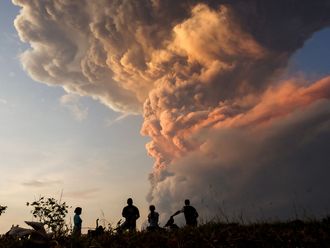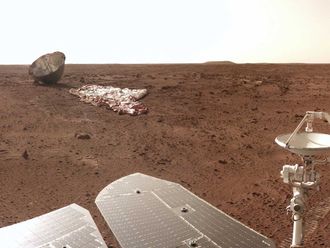Tokyo: An election tomorrow for the governor of a southern Japanese island where a controversial US Marine base is located is likely to cause more problems for Japan's relations with key ally, the United States, as both leading candidates want the base off the island.
The US Futenma air base has been located on Okinawa island since 1945, and residents have long complained it produces aircraft noise and crime.
A 2006 deal between the US and Japan to relocate the base to a less crowded location on Okinawa has sunk into stalemate. Public opinion in Okinawa remains opposed to the plan. The controversy even toppled a prime minister, Yukio Hatoyama, earlier this year.
The two candidates for Okinawan governor have both run on a platform that opposes the relocation plan, signalling that tomorrow's vote is likely to deal another blow to the already unpopular administration of Hatoyama's successor, Prime Minister Naoto Kan.
Kan, who came to power in June, is battling criticism over gaffes by his ministers, a stagnating economy and over his handling of tensions with China.
Regional security
Kan has said the US military presence, allowed for under a half-century US-Japan alliance, is critical to deter regional security threats.
His argument may be driven home by recent tension on the Korean peninsula, in particular North Korea's artillery strike on a South Korean island on Tuesday, as well as worries over China's growing military power.
Still, Okinawans resent the US military presence. About half of some 50,000 US troops stationed in Japan are on Okinawa.
"Nobody in Okinawa wants the base to stay," Noriyuki Kudeken, an Okinawan who works at a technology company.
One of the biggest outcries against the base followed the rape of a 12-year-old girl by US servicemen in 1995, which set off massive protests.
The base controversy is growing into a major thorn for the US-Japan alliance. Both Kan and Hatoyama are from the Democratic Party which had promised a foreign policy less beholden to the United States before its election last year. The largely untested party trounced the long-ruling Liberal Democrats, which had smoothly engineered the alliance with the US and rarely questioned what Washington wanted.











